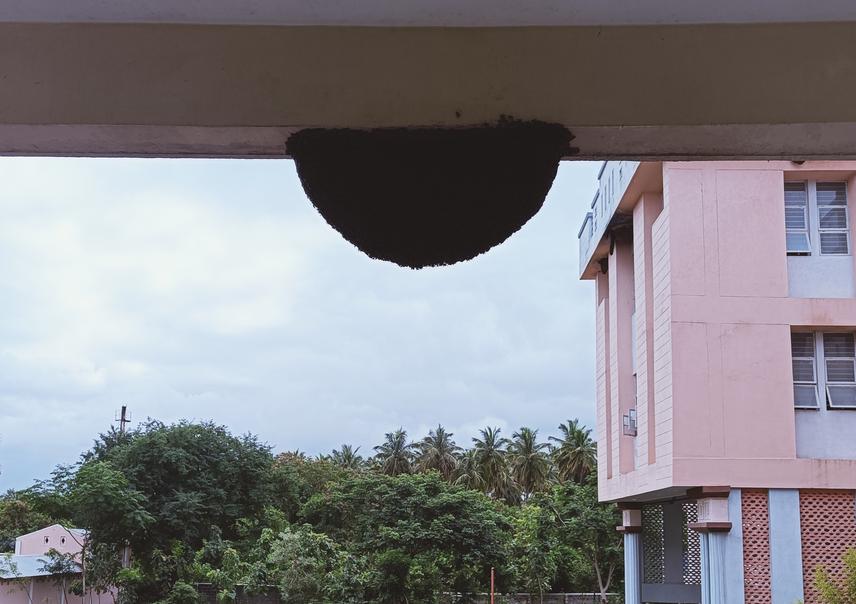Jintu S Vijayan
Apis dorsata, popularly known as rock bee or Asian giant honeybee, is an important wild bee pollinator in South Asian countries. They construct open nests in trees, rock cliffs, buildings, and migrate seasonally from plains to mid- to high-elevation forests to take advantage of floral supplies at varying altitude gradients. The weather conditions of the geographical region have a significant influence the timing of the migration every year by the influencing the number of resources available in the region. The Biligiri Rangaswamy Temple Tiger Reserve (BRT) is a protected area in south India mostly inhabited by the Soliga tribes, whose principal source of income is non-timber forest products (NTFPs), primarily rock bee honey. 18 to 20 tonnes of rock bee honey being collected by the Soliga community annually in BRT. Despite the importance of these bee species, drivers for the decline in their colony numbers in the form of pesticides, climatic variations, and human-bee conflicts are often overlooked, especially in the surrounding agricultural and peri-urban areas, where no systematic monitoring studies are in place.

The preference of rock bees to nest in urban buildings brings direct conflict with the humans. Copyright @Jintu S Vijayan.
The major objective of this project is to establish a baseline data on the population and foraging dynamics of rock bees in the forest-agriculture-urban landscape gradient by developing a list of foraging plants, and data on seasonal interactions between the key flowering plants and rock bee population. We also aim to generate detailed documentation and assessment of the traditional ecological knowledge of the Soliga, farmer and peri-urban communities about the nesting sites, foraging resources, honey harvesting methods, and land management practices. By integrating the ecological data and community knowledge, our ultimate goal is to develop inclusive conservation plans that can be practical and accepted across the Soliga, farmer, and town resident communities in order to mitigate threats to the rock bee colonies and to foster human-bee relationships.